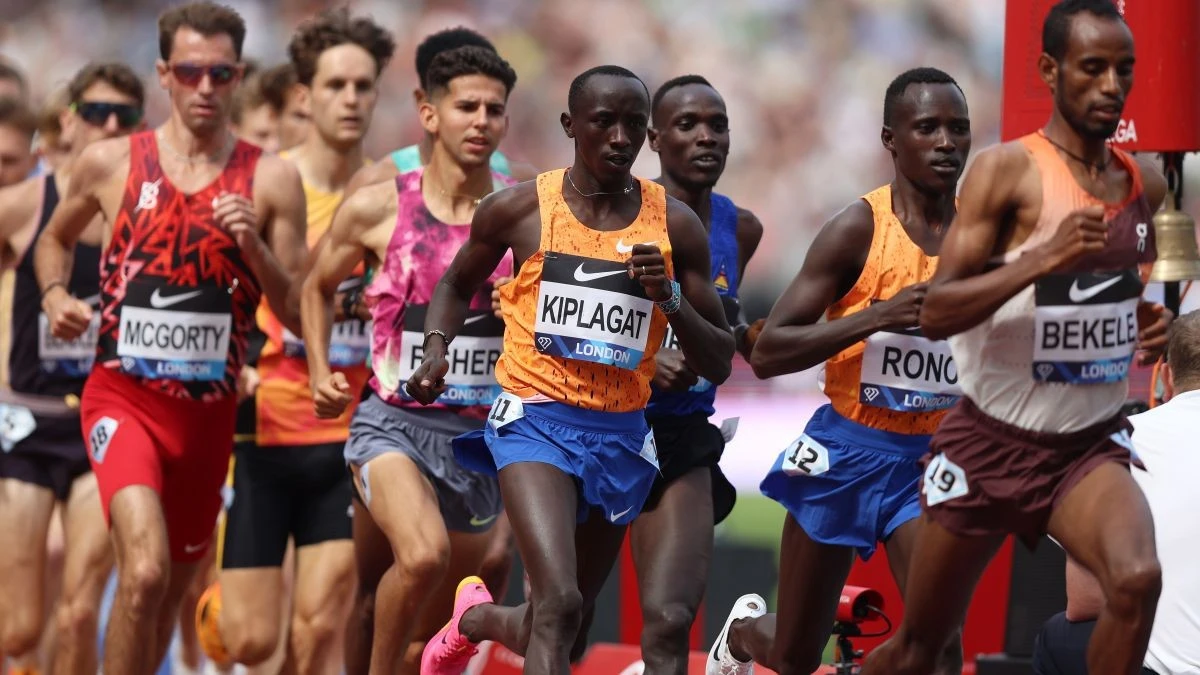There are moments in sports that capture the world’s admiration, the high points where records are shattered and new legends rise from the humble roadsides of Rift Valley. Yet, behind every breathtaking finish and victory lap, a quietly unfolding drama can sometimes reveal the heavy cost of triumph. One such moment is now shaping the narrative of doping in Kenyan athletics, as a manhunt for a fugitive pharmacist spotlights the tangled web between aspiration, desperation, and the pursuit of unfair advantage.
The pharmacist at the center of the storm
For years, Kenya’s running prowess has been both an inspiration and a source of envy. The country’s athletes, particularly those from regions like Iten and Eldoret, have dominated global long-distance events. The emergence of James Cheruiyot Kipsanai, a pharmacist now wanted by the authorities for allegedly administering performance-enhancing drugs to athletes, pulls back the curtain on the darker byways of this glory.
Kipsanai, who ran Kerich Pharmacy first in Iten and then in Kapsoya, Eldoret, is accused of a range of offences, including supplying prohibited substances—such as triamcinolone acetonide and erythropoietin—to athletes. His flight from justice is not just about personal culpability; it’s a window into how infrastructure and expertise intended for healing can be twisted into a tool of cheating.
A cat and mouse game with authorities
The narrative of Kipsanai’s arrest and subsequent escape is as dramatic as any race finish. Following a tip-off in January last year, anti-doping agents and the Directorate of Criminal Investigations (DCI) raided his original pharmacy in Iten. There, they allegedly discovered him treating athletes with substances later identified as illegal under Kenyan anti-doping laws. The case should have been cut and dried, but, as Senior Compliance Officer Dennis Keitany recounts, the absence of concrete evidence meant Kipsanai was released on bond, even as investigations intensified.
What followed reads like a suspense thriller: Kipsanai relocated, set up shop under the same pharmacy name in Kapsoya, and continued his clandestine trade. When authorities came knocking again, he sealed himself inside and made his escape through the ceiling—a desperate act that hints at the high stakes for all involved.
The drugs behind the deception
Among the substances found at Kerich Pharmacy, triamcinolone acetonide and erythropoietin stand out. The former, on the World Anti-Doping Agency’s prohibited list since 2014, allows athletes to lose weight while retaining power—a subtle yet potent competitive edge. The latter, used to stimulate red blood cell production and boost endurance, has been at the heart of major international doping scandals.
In the words of investigators, the discovery of not only these drugs but also records of their unauthorized dispensation signals a critical breach. The very pharmacist entrusted with the care of athletes’ health allegedly became the architect of their fall from grace. Still, the fight for accountability is complicated by legal technicalities and the agility of those seeking to evade justice.
The slow wheels of justice and building a case
After months of investigations, the Office of the Director of Public Prosecution (ODPP) recommended prosecution, mandating Kipsanai to appear in court to face five charges. These included administering prohibited substances, possessing controlled drugs without authorization, using unlicensed premises as a health facility, and failure to make legal drug entries.
The warrant for his arrest, issued after his no-show in court, signals a wider crackdown. Authorities, including Chief Inspector Philip Langat, are urging public support, recognizing that community vigilance is crucial to breaking the cycle of doping and restoring trust in Kenyan athletics.
| CASINO | BONUS | INFO | RATING | |
|---|---|---|---|---|
|
bonus
Welcome free bets up to 25 x 10 KES!
See 5 Bonuses
|
info
BK 0000694 PG 0000421 Fast payment method, good selection of casino games, user-friendly interface |
|||
|
bonus
Refer a friend and claim KSH 250
See 4 Bonuses
|
info
BK 0000739 PG 0000468 BCLB license, registration bonus, variety of casino games |
|||
|
bonus
Welcome Bonus up to 18,000KES
See 17 Bonuses
|
info
Curacao OGL/2024/225/0601 Lots of exciting bonus features |
|||
|
bonus
WELCOME BONUS UP TO 19000 KES FOR SPORTS BETTING
See 11 Bonuses
|
info
PG 0000423 A simple way to start playing |
Broader implications for Kenyan running and youth
Every athlete who steps up to the starting line in Rift Valley, dreams of the chance to represent Kenya on the world stage. The doping scandal, however, clouds these aspirations with suspicion and unease. As the doping scandal unravels, young runners may wonder whether their hard work and natural talent will ever be enough—or if the lure of chemical shortcuts will prove too strong.
Recent data shows that cases of doping among young Kenyan athletes are on the rise. With authorities suspending dozens of competitors for banned substances, the pressure and temptation seem to be mounting.
The fragile trust between fans and athletes
For fans who line the streets to cheer for their hometown heroes, every new suspension or arrest chips away at the thrill of victory. There is sympathy, too, for those athletes caught in this web—many young runners come from humble backgrounds, for whom a breakthrough in athletics could change family fortunes forever. But those dreams are now intertwined with the specter of shortcuts and their consequences.
Calls for education, transparency, and reform
The story is as much about institutional vulnerability as individual wrongdoing. The fact that a pharmacist could supply and administer banned substances points to gaps in oversight, record keeping, and education. For anti-doping agencies, the lesson is clear—need for robust tracking, stricter licensing of practitioners, and comprehensive education of both athletes and their support staff is paramount.
There are several steps to address the issue at its roots – sustained community outreach, ongoing workshops for both athletes and advisors, and vigilant monitoring of pharmacies in training hubs, and ultimately, the creation of a sporting culture where ethics are as celebrated as medals.
Restoring the finish line to its true meaning
The unfolding saga of doping in Kenyan athletics is a cautionary tale. It reminds us that the glory found at the finish line should be won on the merits of discipline, sacrifice, and, above all, integrity. The fight against doping is far from over. It demands not only vigilance from regulatory bodies but also a societal commitment to honesty and fair play.
As the authorities close in on fugitives and as conversations turn towards reform, there is hope that future champions from Iten, Eldoret, and beyond will run unburdened by suspicion, their victories a testament to spirit, not subterfuge. For every child lacing up their first pair of running shoes, it is a message that greatness is achieved not with shortcuts, but by choosing the harder—and nobler—path.










